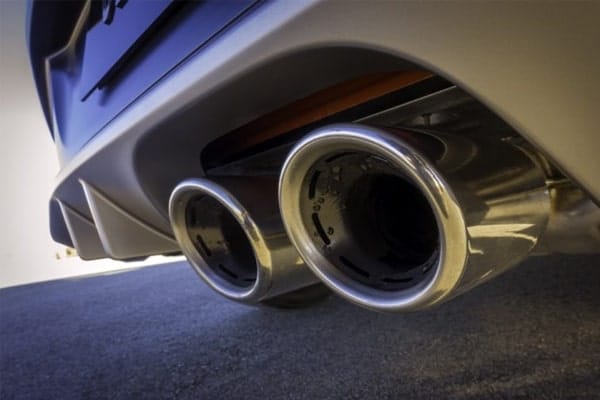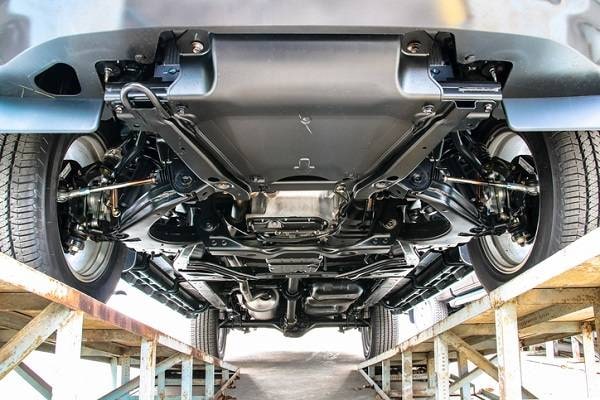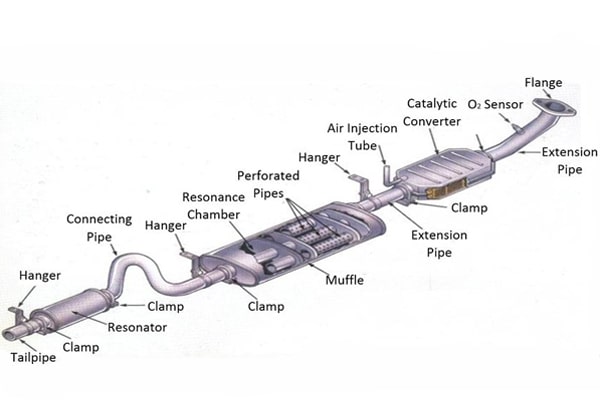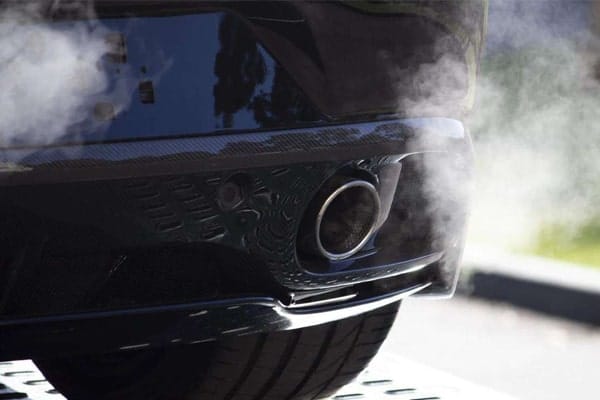There is something incredibly gratifying about driving a car. Hitting an open road hearing your engine roar, changing the gears like a pro, and enjoying the landscape… The sense of control and pleasure you get out of it.
Of course, the opportunities for what we have described are few and far between and something will always be there to spoil your fun. Even if you manage to avoid angry drivers, traffic jams, and heavy rain, small things like loud exhaust will turn your car into rolling trouble and annoy the living hell out of everyone on the road – you included.
But, as we all know, the powerful exhaust is essential for good performance so we are often ready to pay for that performance with excessive noise. Now, is there any way how to quiet exhaust without losing performance?
Let us try to find out in the article below.
How does the exhaust system work?
In a sense, the car engine works a lot like human lungs. It needs to breathe the air in to perform some internal processes and it needs to breathe out the poisonous by-products when all is said and done.
In the case of car engines, the air is necessary to produce the combustion that fires up the fuel and moves the mechanical parts. Now, much like any other combustion, the one that keeps our cars moving releases high amounts of carbon dioxide (CO2), carbon monoxide (CO), nitrogen oxide (NOx), and other harmful gases.
Being able to quickly dispose of these gases is important for a number of reasons.
First, allowing these contaminants to pile puts the driver and everyone in the vehicle in grave danger.
The second reason, which is far more important for this topic is that the engine is not able to breathe in more air and work efficiently until these gases are gone. So, to sum everything up the exhaust is just as vital for the car performance as fuel and air intake.
The anatomy of exhaust system
Now, let us try to break the exhaust system into pieces and learn some terms that will pop up in the following conversation.
At the very beginning of the gas disposal process, the pollutants we have mentioned above are collected in the engine cylinder by an exhaust manifold which, in this case, serves as a sort of funnel. It collects the gases from all separate engine cylinders and then releases them through a single opening (usually called front pipe).
After that, the exhaust gases travel to a catalytic converter. This component can be best described as an emission control device that reduces toxic gas into less toxic pollutants. We like to call these less harmful compounds inert gas.”
A couple of pipes later the inert gas enters the famous silencer aka muffler. As you can probably guess, the main goal of this component is to keep the exhaust noise levels at an acceptable level. This is achieved through a simple set of tubes that are carefully tuned to reflect the sound waves produced by the engine.
If one of these tubes is corroded or punctured (it’s inevitable at some point, no matter how careful you are), the muffler will no longer be able to do its job and you will make a lot more noise when you hit the road.
Finally, the gases leave the vehicle through a tailpipe which is the only visible part of the exhaust system (other components are located underneath the vehicle).
Why is your exhaust louder than usual?
Being such an intricate system, car exhaust leaves a lot of things to chance. If any of the components we have covered above gets damaged your car will start screaming, banging, and clattering. Now, we are going to quickly go through some of the most common reasons.
In most cases, the reason why the exhausts emit loud noise is that the tubes in the muffler are damaged. Much like any other car components mufflers wear out and become thinner. They are also located underneath the vehicle so they are extremely vulnerable to punctures. This is a killer combo so if you are looking for causes, start here.
Another common cause of loud exhaust is leaking. What is leaking exactly? Well, any kind of important fluids or gases that may disrupt the exhaust system. Turn your car on, let it idle, pull the handbrake (safety first), and look under the vehicle for gas leaks or fluid ponds.
Finally, your car may be too powerful for the stock exhaust system you got with it
Now that we know what to look for, let’s see how to quiet exhaust without losing performance if you are facing some of these problems.
Fix the leaks
Let us first cover the small punctures and leaks, since they can be easily dealt with even without the help of a professional mechanic. The material you will need to patch these small holes is called the heat-resistant epoxy (the temperature in the exhaust system can get really high) and you will do that by simply pressing the required amount into the hole and smooth the surface with your hands.
If the punctures are too big, and you are not able to patch it up with the mentioned material you should look for muffler cement (you can find it in any store nearby). Be sure to clean the surface around the hole to spread the cement more evenly.
Soundproof the muffler
Most of the commercially available high-performance mufflers (more about them in a minute) are packed with dampening materials like metal wool, fiberglass, and steel scrubs. If you are not ready to perform a full upgrade you can fix immediate problems by performing similar soundproofing DIY and fill the muffler with some kind of padding. The materials we have mentioned above are a great pick since they are heat-resistant.
How to improve baseline sound levels without shortchanging the vehicle?
As I briefly mentioned above, sometimes the loud noise coming out of the exhaust is not the result of some breakdown or mechanical failure. It might just be that the engine is too powerful for the exhaust system you got with the vehicle.
So, if you want to know how to quiet exhaust without losing performance, the most obvious answer would be to simply replace the existing setup with some higher performance alternative. Is there any way to get similar results without replacing the entire exhaust system?
Well, yes. Actually, you get two of them.
Invest in a new muffler
As we’ve seen from our previous exhaust breakdown, we can see that the muffler makes the most important component in the exhaust’s sound management system. If you are ready to invest some money, you can get yourself a couple of very interesting picks that will be able to considerably silence your car without preventing the exhaust to seamlessly release the gases.
Of course, it is highly recommended that you leave the very replacement to the professional mechanic.
Install a silencer
This is another popular hack for turning your car into a ninja. Essentially, silencers are small parts that narrow down the hole that releases the exhaust noise reducing the noise in the process. What’s even better, these components are very easy to install so you won’t need professional help.
If you can’t afford this sort of upgrade, DIY can be easily put together even in your garage. You only need to look for a couple of online tutorials.
In conclusion
We hope that this short guide gave you some general ideas about the importance of the exhaust system and the ways to make it quieter without compromising the performance of your vehicle. As we can see most of the things we have talked about are not that serious and can be easily fixed in the comfort of your garage. But, it is always good to pay a visit to your mechanic.
Sometimes, the exhaust problems may be pointing out to some bigger problem you are probably not aware of. In situations like that, it’s good to have a trained professional on your side.





